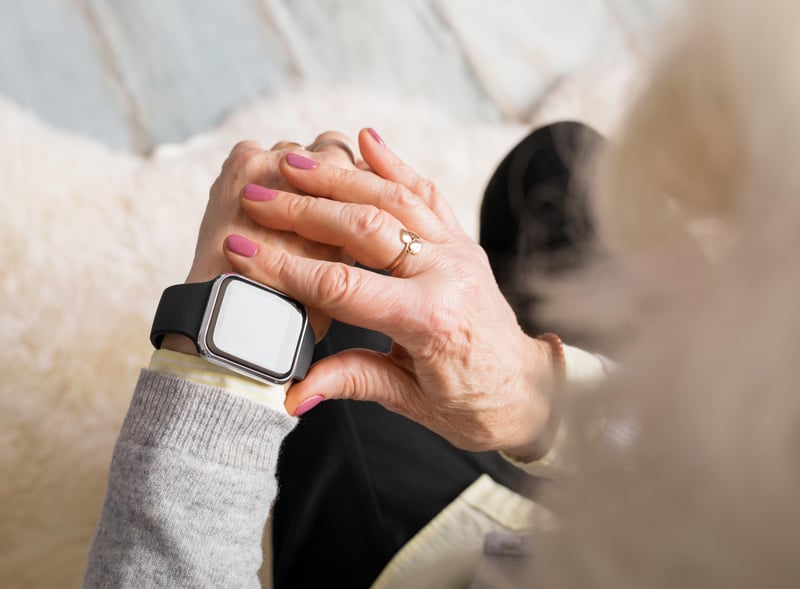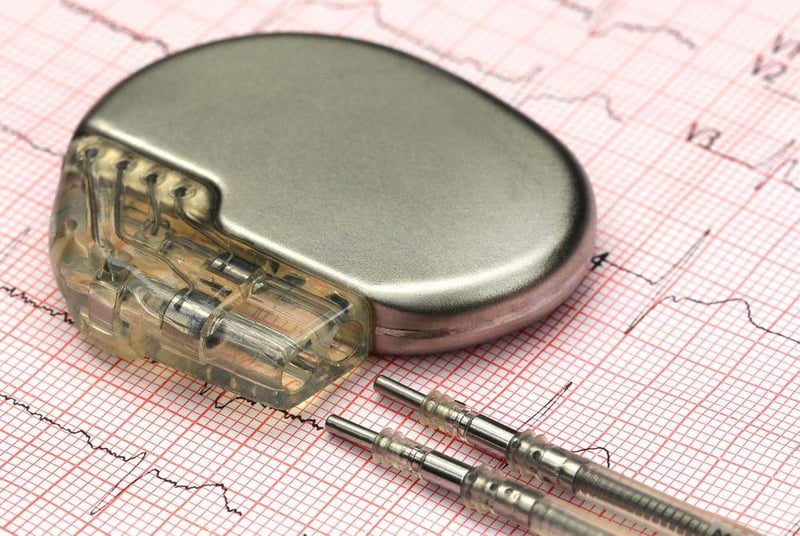Get Healthy!
Results for search "Heart Pacemakers".
Health News Results - 16
Four astronauts preparing for an extended stay in space have started quarantine as they get ready for their next big mission.
The Crew-12 team entered a two-week isolation period Jan. 28 at NASA’s Johnson Space Center in Houston.
The goal? Keep everyone healthy before liftoff.
The crew is scheduled to...
- I. Edwards HealthDay Reporter
- |
- February 3, 2026
- |
- Full Page
The National Aeronautics and Space Administration (NASA) is undertaking its first-ever medical evacuation from the International Space Station.
The evacuation of four astronauts — two from the U.S., and one each from Russia and Japan — is a safety precaution, NASA said.
One astronaut has developed an undisclosed medical issue and is in stable condition, officials s...
- I. Edwards HealthDay Reporter
- |
- January 12, 2026
- |
- Full Page
Space travel takes a significant toll on the human body, and a new study reveals that it can speed up the aging of crucial blood and immune cells.
Researchers from the University of California San Diego found that blood-forming stem cells showed signs of rapid aging after spending just over a month in space.
The study used automated artificial intelligence (AI)-driven imaging ...
- Deanna Neff HealthDay Reporter
- |
- September 8, 2025
- |
- Full Page
As humans begin to colonize space, it’s inevitable that some will suffer a cardiac arrest.
Space CPR conducted in weightlessness will be crucial to save their lives – and researchers say they’ve now come up with a better metho...
- Dennis Thompson HealthDay Reporter
- |
- August 28, 2025
- |
- Full Page
People with heart implants could be in trouble if they’re hit with a powerful handheld taser, a new study says.
A heavy electrical charge delivered by a taser could cause a pacemaker or implanted defibrillator to malfunction, researchers report in the journal Heart Rhythm.
As a res...
- HealthDay Reporter
- Dennis Thompson
- |
- April 9, 2025
- |
- Full Page
Don't let your surgeon toss your old heart pacemaker out with the trash.
Used pacemakers can be refurbished, researchers report, providing the potential for more people overseas to get the lifesaving devices.
"Unlike in the United States, pacemaker therapy is often not availabl...
- HealthDay Reporter
- Carole Tanzer Miller
- |
- November 28, 2024
- |
- Full Page
It's a pacemaker that's a bit like the Energizer bunny -- it will keep ticking and ticking and ticking.
An experimental pacemaker is able to partially recharge its own battery by using heartbeats to generate fresh electrical energy, researchers report.
The device can recoup about 10% of the energy needed to stimulate another heartbeat, which would extend the 6- to 15-year life of a ...
- HealthDay Reporter
- Dennis Thompson
- |
- November 6, 2023
- |
- Full Page
New research finds that many of those who have received an implanted cardiac device to extend their life also have mood disorders, including anxiety, depression and PTSD.
"Implantable cardioverter defibrillators [ICDs] are effective at extending patients' lives, but we need to make sure that's a good quality life,"said study author
- HealthDay Reporter
- Cara Murez
- |
- June 19, 2023
- |
- Full Page
Cars are going electric at record speed, but are the high-powered charging devices the cars need safe for people who have implanted heart devices?
Yes, claims new research that also found home car chargers are likely also safe, as long as the person with the ...
- HealthDay Reporter
- Cara Murez
- |
- April 17, 2023
- |
- Full Page
Wireless pacemakers could be a safe and effective short-term option for children with slow heartbeats, a new study suggests.
Children with a heartbeat that's too slow -- a condition called bradycardia -- need a pacemaker to keep their hearts beating normally.
Researchers successfully implanted wireless pacemakers into 62 kids to see if the cutting-edge devices could be safely used i...
- HealthDay Reporter
- Dennis Thompson
- |
- April 11, 2023
- |
- Full Page
If you're one of the millions of people with a pacemaker or an implantable defibrillator to help control abnormal heart rhythms, certain health-tracking devices may do more harm than good.
Smartwatches, rings or scales that emit electrical currents can interfere with these lifesaving implantable heart devices, causing them to malfunction, a new study suggests.
"While the electr...
- HealthDay Reporter
- Denise Mann
- |
- February 22, 2023
- |
- Full Page
Many things can make your heart skip a beat -- the words to a song, a case of the nerves or a near car accident -- but these temporary palpitations aren't usually cause for concern.
But much more serious, and sometimes deadly, things can throw off the heart's rhythm, including dehydration, a history of heart disease or a heart defect. Medications, intense exertion or anxiety can also tri...
- HealthDay Reporter
- Melissa Renae RDN
- |
- February 17, 2023
- |
- Full Page
When implanted heart devices get infected, doctors recommend surgery to remove them, but many patients ignore that advice, a new study reveals.
More than eight in 10 patients with an infected implant (such as a defibrillator or pacemaker) choose antibiotic treatment instead, t...
- HealthDay Reporter
- Cara Murez
- |
- April 8, 2022
- |
- Full Page
Some portable tech devices equipped with powerful magnets can interfere with your heart implant's ability to regulate dangerous irregular heart rhythms, a new study reports.
Swiss researchers found that Apple AirPods Pro, the Microsoft Surface Pen and the Apple Pencil all can temporarily throw a pacemaker/defibrillator off if they are held too close to the implant.
"These devic...
- HealthDay Reporter
- |
- March 1, 2022
- |
- Full Page
People who are prescribed opioid painkillers after receiving a heart pacemaker or defibrillator may be at risk for opioid abuse -- and the higher the initial dose, the greater the risk, according to a new study.
"The significance of this study is to make other electrophysiologists aware that even a low-risk procedure like a pacemaker or a defibrillator can lead to chronic opioid use and t...
- HealthDay Reporter
- Robert Preidt
- |
- December 1, 2021
- |
- Full Page
Do you have an implanted defibrillator or pacemaker? Try keeping your smart watch or smart phone a few inches away from them.
New research from the U.S. Food and Drug Administration finds that your phone or watch could interfere with implanted heart devices.
Based on the new findings, heart patients and health care providers should be aware of potential risks, the research team...
- HealthDay Reporter
- Ernie Mundell and Robert Preidt
- |
- August 26, 2021
- |
- Full Page
















